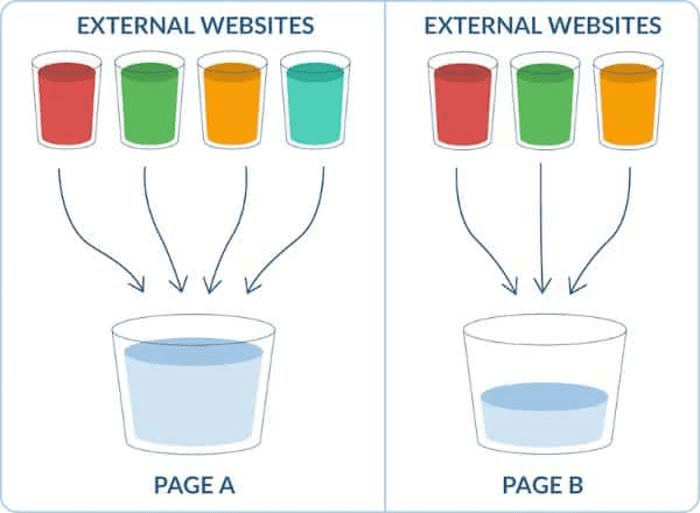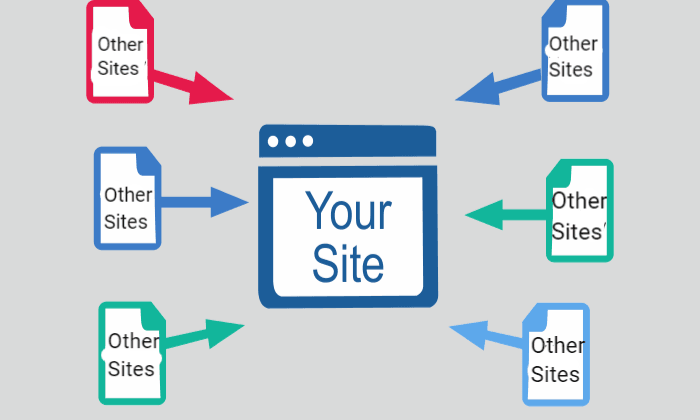Quick Summary
Tracking SEO progress is vital to ensure your optimization efforts are yielding results. This guide covers key metrics like keyword rankings, organic traffic, and backlinks. Using tools like Keyword Metrics, you can monitor your keyword performance, conduct competitor analysis, and build comprehensive SEO reports. By regularly tracking and adjusting your strategy, you can improve rankings, boost organic traffic, and stay ahead of competitors, driving long-term SEO success.
Want to track your SEO progress?
Tracking your SEO progress is essential for ensuring that your efforts are driving meaningful results. Whether you're improving keyword rankings, increasing organic traffic, or outranking competitors, regularly monitoring key SEO metrics is the key to success. If you follow these steps, you can streamline this process, gain valuable insights, and make data-driven decisions to optimize your strategy.
Why Track SEO Progress?
Tracking your SEO progress is essential for maintaining and improving your website's performance in search engine rankings. Here’s why regularly monitoring your SEO metrics is vital:
Measure Keyword Performance: Knowing how your keyword performance is changing enables you to adjust your strategy accordingly.
Optimize Organic Traffic Growth: Tracking organic traffic trends allows you to identify the impact of your SEO efforts and spot any drops or spikes in website visits.
Identify Competitor Strategies: By performing regular competitor analysis, you can see where your competitors rank, what keywords they are targeting, and how they’re performing.
Track SEO Metrics for Informed Decision Making: Key metrics such as backlinks, CTR (Click-Through Rate), and domain authority give you a complete picture of your website’s performance.
Enhance ROI: By tracking key metrics, you can focus on what works and eliminate what doesn’t, ultimately improving your return on investment (ROI).
With Keyword Metrics, you can streamline the process of tracking SEO progress by using advanced tools for keyword tracking, competitor monitoring, and building detailed SEO reports.
How to Track SEO Progress
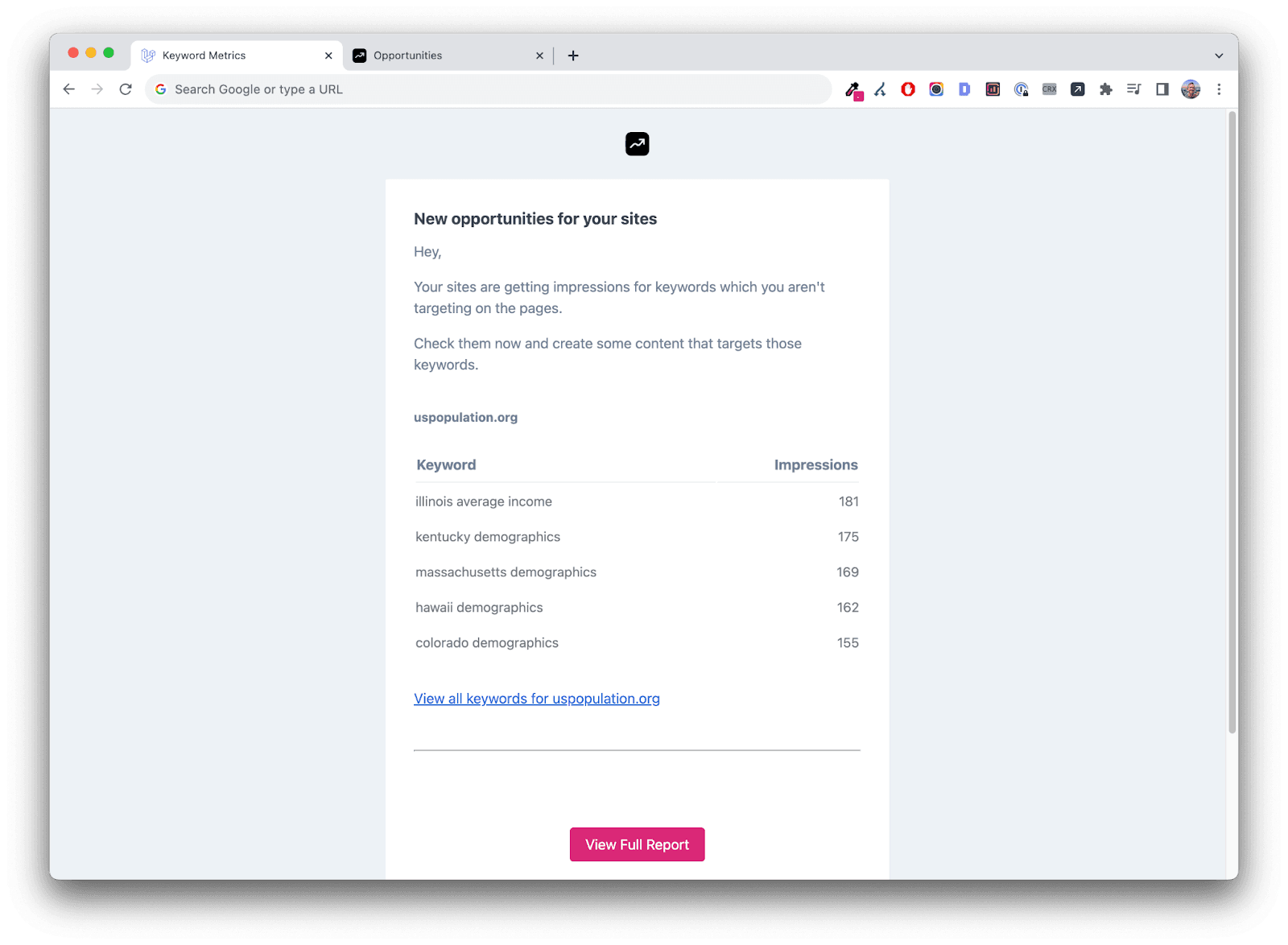
Tracking your SEO progress effectively requires a systematic approach and the right tools. Here’s a step-by-step guide on how to do it, along with best practices to ensure you get the most out of your SEO efforts.
Step 1: Set Clear SEO Goals
Before tracking any metrics, establish clear goals for your SEO strategy. Whether it’s increasing organic traffic by 30% in six months or improving keyword rankings for specific phrases, having defined objectives will help you measure success effectively.
Step 2: Choose the Right SEO Tools
Utilizing the right keyword research tools and keyword tracking tools is crucial for monitoring your SEO performance. Keyword Metrics offers a range of features, including keyword monitoring, competitor analysis, and automated SEO report building, making it easier to track progress.
Step 3: Monitor Keyword Rankings Regularly
Consistently tracking your keyword rankings is essential. Use your chosen tools to monitor how well your targeted keywords are performing over time. Look for trends in rankings and make adjustments to your content strategy as needed.
Step 4: Analyze Organic Traffic Trends
Keep an eye on your website’s organic traffic using analytics tools. Identify which pages are driving traffic and which keywords are contributing to growth. This information helps you refine your content strategy and focus on high-performing areas.
Step 5: Track CTR and Engagement Metrics
Monitoring your CTR (Click-Through Rate) and other engagement metrics, like bounce rate and average session duration, provides insight into how well your content resonates with users. High engagement rates indicate that your content is meeting user needs.
Step 6: Review Backlink Profiles
Regularly check your backlinks to see which sites link to you and how these links impact your SEO. Use tools like Keyword Metrics to analyze the quality of your backlinks, as high-quality links from reputable sites can significantly boost your domain authority.
Step 7: Conduct Competitor Analysis
Performing competitor analysis allows you to see how your website stacks up against others in your niche. Identify their successful keywords, content strategies, and backlink sources. This information can guide your own SEO efforts and help you find new opportunities.
Step 8: Optimize Page Speed
Use tools to check your website’s page speed regularly. Slow-loading pages can hurt your SEO and user experience. Implement best practices, such as image optimization and minimizing HTTP requests, to enhance your site’s loading times.
Step 9: Focus on Long-Tail Keywords
Incorporate long-tail keywords into your strategy. These specific phrases often have lower competition and higher conversion rates. Track how well these keywords perform to attract targeted traffic to your site.
Step 10: Create Comprehensive SEO Reports
Compile your findings into SEO reports to track progress over time. These reports should include all key metrics, insights from competitor analysis, and notes on adjustments made. With Keyword Metrics, you can automate this reporting process for convenience.
Best Practices for Tracking SEO Progress
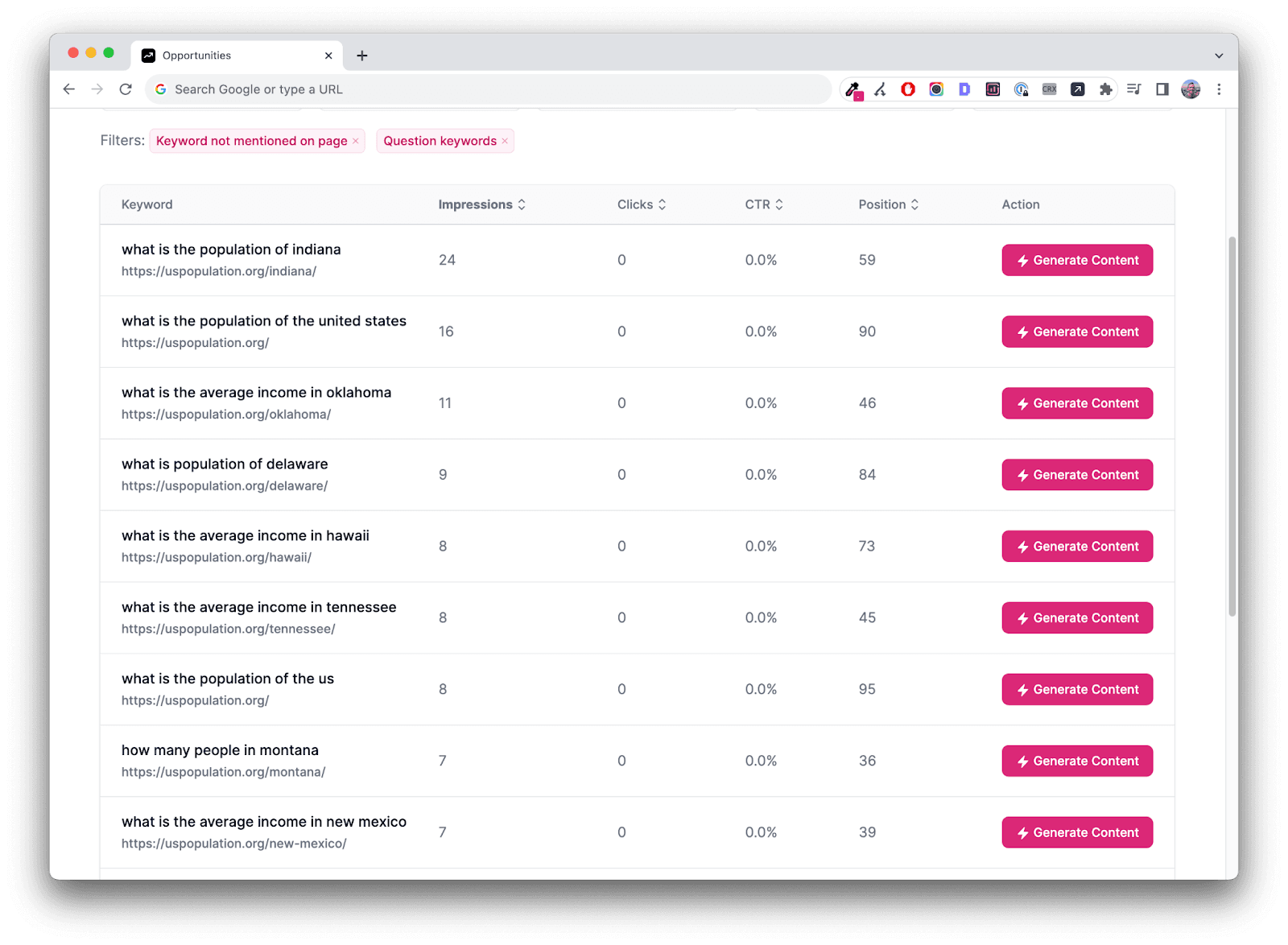
Consistency is Key: Regularly check your metrics to identify trends and make timely adjustments to your strategy.
Prioritize High-Impact Metrics: Focus on metrics that directly impact your business goals, such as organic traffic, keyword rankings, and conversion rates.
Set Benchmark Metrics: Establish baseline metrics to measure your progress against. This helps you understand what success looks like and when adjustments are needed.
Adapt and Evolve: The SEO landscape is constantly changing. Be prepared to adapt your strategy based on performance data and industry trends.
Utilize Visual Analytics: Use visual representations of data, such as graphs and charts, to make trends easier to spot and report on.
Engage Your Team: Share your findings with your team to ensure everyone is aligned with your SEO goals and strategies.
By implementing these best practices and following the steps outlined above, you can effectively track your SEO progress and make informed decisions to enhance your online visibility.
Ready to take your SEO tracking to the next level? With Keyword Metrics, you can streamline the process with comprehensive keyword monitoring, competitor analysis, and automated reporting features. Start optimizing your SEO strategy today and see real results!
Key Metrics Used to Track SEO Progress
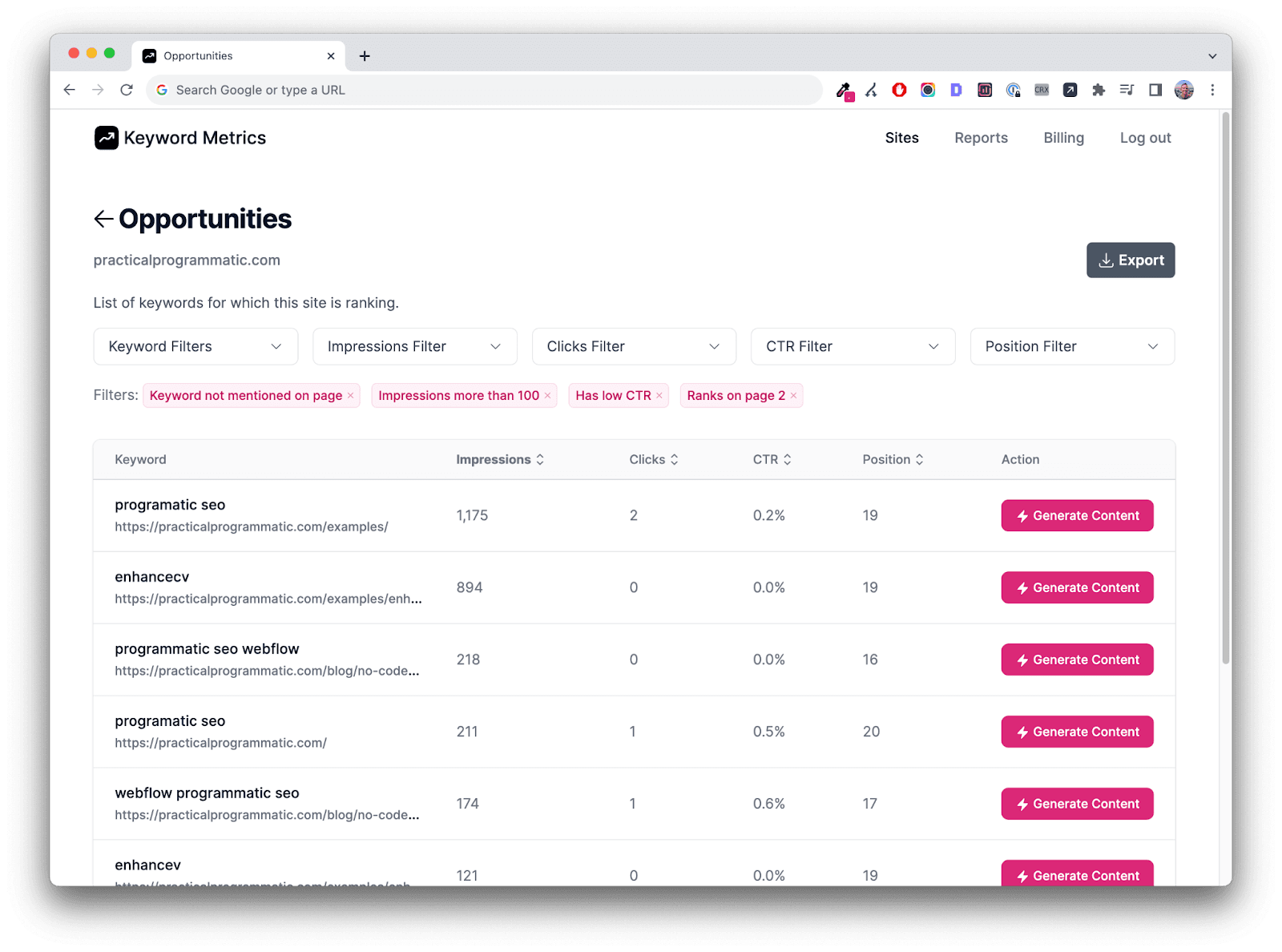
Tracking the right metrics is crucial to understanding how your SEO strategy is performing. These key metrics help you evaluate your website’s success and identify areas for improvement. Here's a breakdown of the most important SEO metrics to track:
Keyword Rankings: Your keyword rankings determine where your website appears on the SERP (Search Engine Results Page) for specific keywords.
Organic Traffic: Organic traffic refers to the visitors who come to your website through unpaid search results.
Backlinks: Backlinks play a significant role in determining your website’s domain authority and overall SEO performance. The more high-quality backlinks you have, the more search engines view your site as credible.
Domain Authority: Domain authority is a score that predicts how well a website will rank on search engines.
CTR (Click-Through Rate): Your CTR measures the percentage of users who click on your website’s link after seeing it in the search results.
Page Speed: Page speed is a critical SEO metric that affects both user experience and search rankings. Slow-loading pages can drive visitors away and hurt your rankings.
Competitor Analysis: Regularly tracking your competitors’ SEO performance gives you valuable insights into their strategies.
Long-Tail Keywords: Long-tail keywords are specific, lower-competition phrases that often lead to higher conversion rates.
Organic Traffic Growth: Tracking organic traffic growth shows whether your SEO efforts are consistently bringing in more visitors over time.
SEO Report Building: SEO report building involves compiling all your SEO metrics into a comprehensive overview. These reports help you track progress over time, evaluate the success of your strategies, and make informed decisions for future SEO efforts.
With Keyword Metrics, tracking these key SEO metrics is straightforward. The platform offers powerful keyword tracking tools, competitor tracking, and in-depth SEO reporting features, allowing you to optimize your SEO strategy with real-time data. Whether you're focused on improving keyword performance, organic traffic, or backlink quality, Keyword Metrics has everything you need to streamline the process and achieve better search engine rankings.
Streamline Your SEO Tracking with Keyword Metrics
Tracking your SEO progress is essential for long-term success in the digital landscape. With the right approach and tools, you can gain valuable insights into your website’s performance and make data-driven decisions to improve your strategy. Keyword Metrics empowers you with advanced keyword tracking tools, robust competitor analysis, and seamless SEO report building features, making it easier to monitor your keyword performance and organic traffic growth.
By leveraging Keyword Metrics, you can simplify the process of tracking important SEO metrics like CTR, SERP rankings, and backlinks while focusing on high-impact strategies that drive results. Start using Keyword Metrics today to enhance your SEO efforts and stay ahead of the competition. With our platform, achieving your SEO goals has never been easier!
Learn how to easily find keywords on any website!

